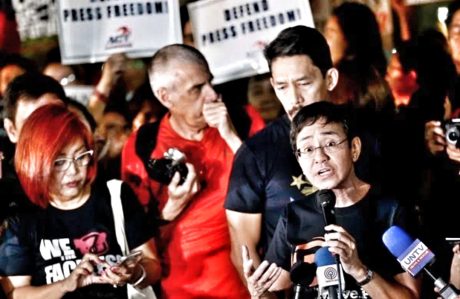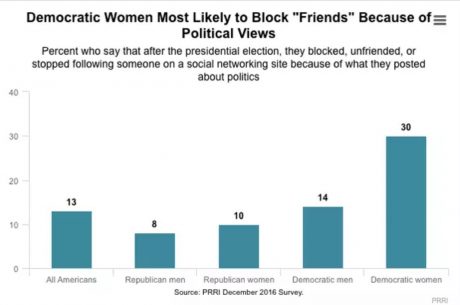
Step back from the political chatter of social media for a moment and ask yourself: Are the “issues” being backed by the loudest, shrillest voices at the moment the most important ones? To answer that question we need first to define the term “important” in this context.
What is important to the average Filipino?
| SUPPORT INDEPENDENT SOCIAL COMMENTARY! Subscribe to our Substack community GRP Insider to receive by email our in-depth free weekly newsletter. Subscribe to our Substack newsletter, GRP Insider! Learn more |
The “average Filipino” is not a very complicated conceptual construct — that is, if you actually take the time to look over the wall of your gated subdivision or over the rim of the latte you may be sipping at the local Starbucks. The average Filipino lives life on a day-to-day basis. And all the average Filipino really needs to know on a daily basis is when and if she will arrive at work today, if tomorrow is a payday, whether or not she will arrive home in one piece at the end of the day, and how she will be paying for her next mobile phone load.
That’s, on the average. Evidently, this too makes me guilty of being selective in my sampling as the profile I painted above mirrors more the average and more visible Filipino city slicker and probably leaves out more wretched folk in the countryside’s hinterlands and those clinging to life along the banks of Manila’s stinking esteros. My point is, it may indeed be true that social media makes us unconsciously retreat more and more into a filter bubble.
Indeed, at the risk of coming across as sexist, an unscientific sampling of the Philippines’ “politically-passionate” social media landscape (based on my own personal experience on Twitter) potentially leads one to conclude that the noisiest, shrillest, and most emotionally-charged voices come predominantly from female liberals. This is interesting considering a recently-published study on American Netizens that yielded results seemingly consistent with this. The report shows that female Democrats are more likely to respond emotionally when they come across ideas that run counter to their personal beliefs and express this distress by blocking users who publish these ideas on social media.
The study shows [America’s left/liberal-leaning] Democrats were almost three times more likely than Republicans (24% vs. 9%) to have unfriended someone after the election. A similar disparity turned up for self-identified liberals versus conservatives (28% vs. 8%). Meanwhile, only 9% of independents reportedly booted someone out of their online social circles because of politics.
This predisposition to block dissenting views can readily be observed too in the Philippines’ social media “influencers” where women identified with the liberal Opposition (and certain men with woman-like characteristics) tend to be the ones who are most likely to block people who challenge their ideas rather than engage them. The figures yielded by that American study show the stark difference as well.

As this graphic shows, the survey also identified “Democratic women” as the most likely of all groups to block someone on social media…
This is likely the reason why feminist concepts have seemingly been turned into an ammo belt of silver bullets against the government of Philippine President Rodrigo Duterte. The arguments behind them are backed by emotionalism and are fired by people who have cocooned themselves within the Internet’s increasingly notorious filter bubbles. These people, it seems, are primarily shrill emotional women (and, shall we say, woman-like men) who identify as liberals.
So the biggest point to reflect on can be framed in these rather confronting questions:
(1) Would you trust people who live in filter bubbles and are intolerant of dissent?
(2) Considering that female liberals are more likely to fit the above profile, will you continue to trust the loud, shrill women of the Philippine Opposition?
Think about it. Perhaps this is the reason why the Philippine Opposition is seemingly in an irreversible slide to irrelevance — because they continue to allow themselves to be led by these shrill emotional women.
- Stupid and stunted: Why Filipinos are looked down upon by the world - December 27, 2025
- This latest Filipino-style ‘anti-corruption’ circus proves that the Philippines needs a serious reboot - November 16, 2025
- Filipinos literal sitting ducks as wind and floods from natural tropical typhoons amplified by years of neglect bear down - November 9, 2025
Women are emotional. If you weaponize your gender for political purposes; there is no sense how your gender can solve the country’s problems. The issue of women’s equality to men, has been a long festering issue, since time immemorial. It has always been a men’s world.
Religion, culture, tribal and family beliefs, etc., have always made women play a secondary role in all aspects in life. Pres. Duterte has nothing to do with the issue. Even, if Pres. Duterte will make a Presidential Decree, making women equal to men. It will be nonsense. Since most men will not follow the decree.
Politics plus women’s issue of equality is an irrational issue.
“If you weaponize your gender for political purposes; there is no sense how your gender can solve the country’s problems.”
Considering all the testosterone-fueled campaigns that ended in victory, you’d think PH would have been on the mend since at least the end of World War 2
There needs to be a distinctly Filipino (i.e. catered distinctly to the needs of Filipinos) brand of feminism/suffrage separate from the White Western Liberal stereotype.
There is no bigger beneficiary of these stumbling so-called progressives than the Philippines’ literal patriarchy, known in our alphabet soup as the CBCP. It’s why PH uniquely has no divorce law, trapping women in abusive marriages subject to our lovely pace of “annulment”, anti-contraception laws that are more stringent than even fundamentalist Muslim countries like Iran, and so on.
Of our thinking it is but the upper surface that we shape into articulate thought; underneath the region of argument and conscious discourse lies the region of meditation.